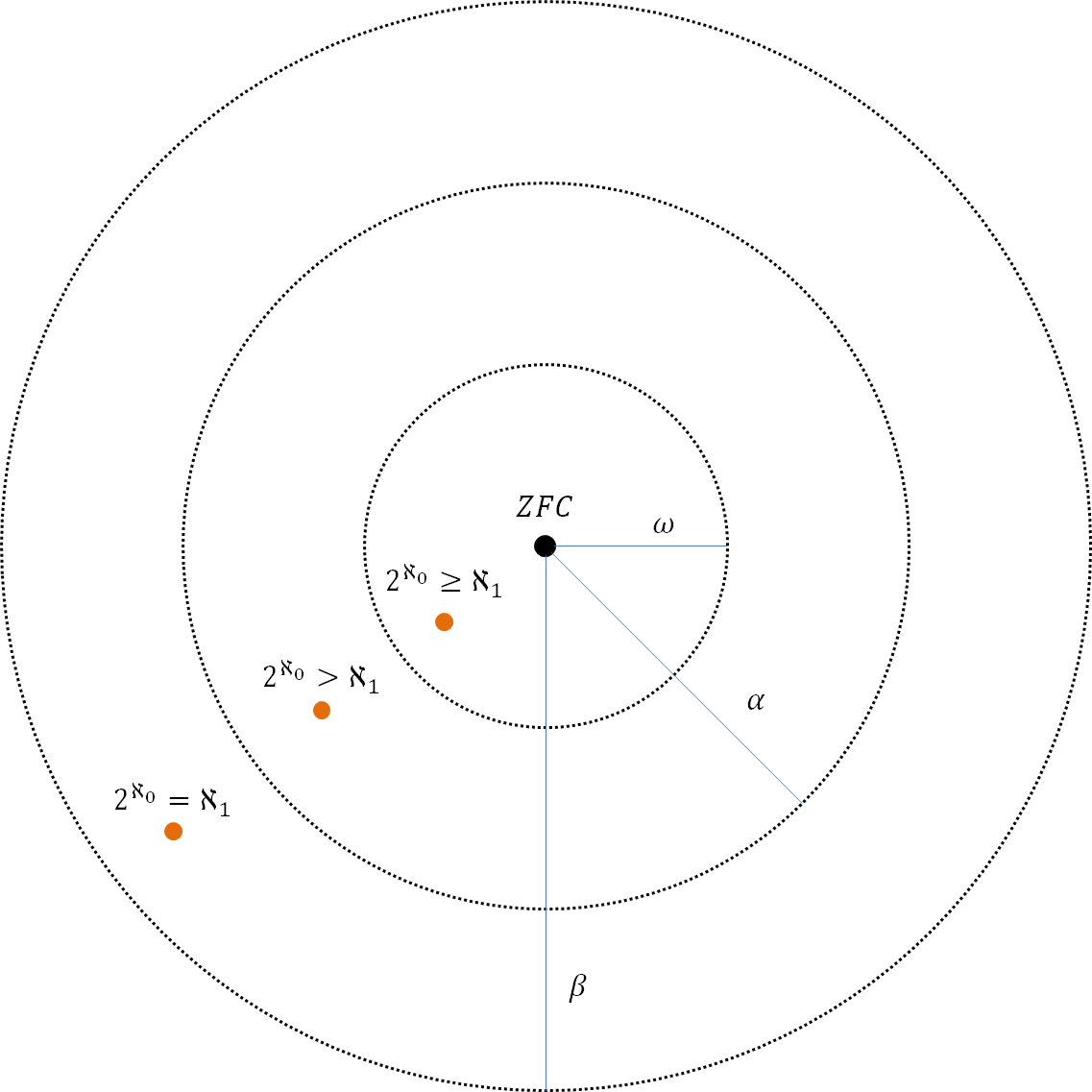The notion of formal proof is defined by finite sequences ($<\omega$ - sequences) of sentences. In some sense if a sentence $\sigma$ is (finitely) provable from the theory $T$ it is very "near" to the "home theory $T$". In this meaning a (finitely) consistent theory is an "origin" with no "near" inconsistency. Also one can think about possibility of "reaching" to an unprovable sentence by increasing the length of the proofs. Now let's replace the notion of first order logic ($L_{\omega,\omega}$) which uses finite proofs with some infinitary logic like $L_{\alpha,\beta}$ and look at the the theory $\text{ZFC}$ using this new glasses.
Definition 1: A theory $T$ in logic $L_{\alpha , \beta}$ is "totally consistent" if for all ordinals $\gamma\geq \alpha , \delta\geq \beta$ the theory $T$ is consistent in logic $L_{\gamma,\delta}$ too.
Question 1: Assuming consistency of $\text{ZFC}$ in first order logic, is the $L_{\omega , \omega}$ - theory $\text{ZFC}$ totally consistent? In the other words: is it possible to prove an inconsistency from $\text{ZFC}$ by allowing proofs in higher length in infinatry logics?
Question 2: Is any unprovable sentence from $\text{ZFC}$ somewhere decidable? Precisely: let $\sigma$ be an unprovable sentence from $\text{ZFC}$ in logic $L_{\omega ,\omega}$. Are there two large enough ordinals $\alpha , \beta$ such that in the logic $L_{\alpha,\beta}$ there is a proof from $\text{ZFC}$ for $\sigma$ or $\neg \sigma$?
Definition 2: Let $T$ be a first order theory and $\sigma$ a sentence. Define the "distance of $\sigma$ from $T$" as follows: $d(T,\sigma):=min\{\alpha\in \text{Ord}~|~\text{In the logic}~L_{\alpha,\alpha}~\text{there is a proof from}~T~\text{for}~\sigma\}$ and if $\{\alpha\in \text{Ord}~|~\text{In the logic}~L_{\alpha,\alpha}~\text{there is a proof from}~T~\text{for}~\sigma\}=\emptyset$ then $d(T,\sigma)=\infty$
Remark 1: We have $d(\text{ZFC},2^{\aleph_{0}}\geq\aleph_{1})\leq \omega$.
Question 3: What are the values of $d(\text{ZFC},\text{CH})$ and $d(\text{ZFC},\neg\text{CH})$?
Remark 2: The following imaginary diagram shows that $d(\text{ZFC},\text{CT})\leq \omega \leq d(\text{ZFC},\neg\text{CH})\leq \alpha\leq d(\text{ZFC},\text{CH})\leq \beta$ which $\text{CT}$ is Cantor's Theorem. Also it shows that $\text{ZFC}$ as a first order theory is not totally consistent and one reachs to an inconsistency if he/she goes too far from it.

